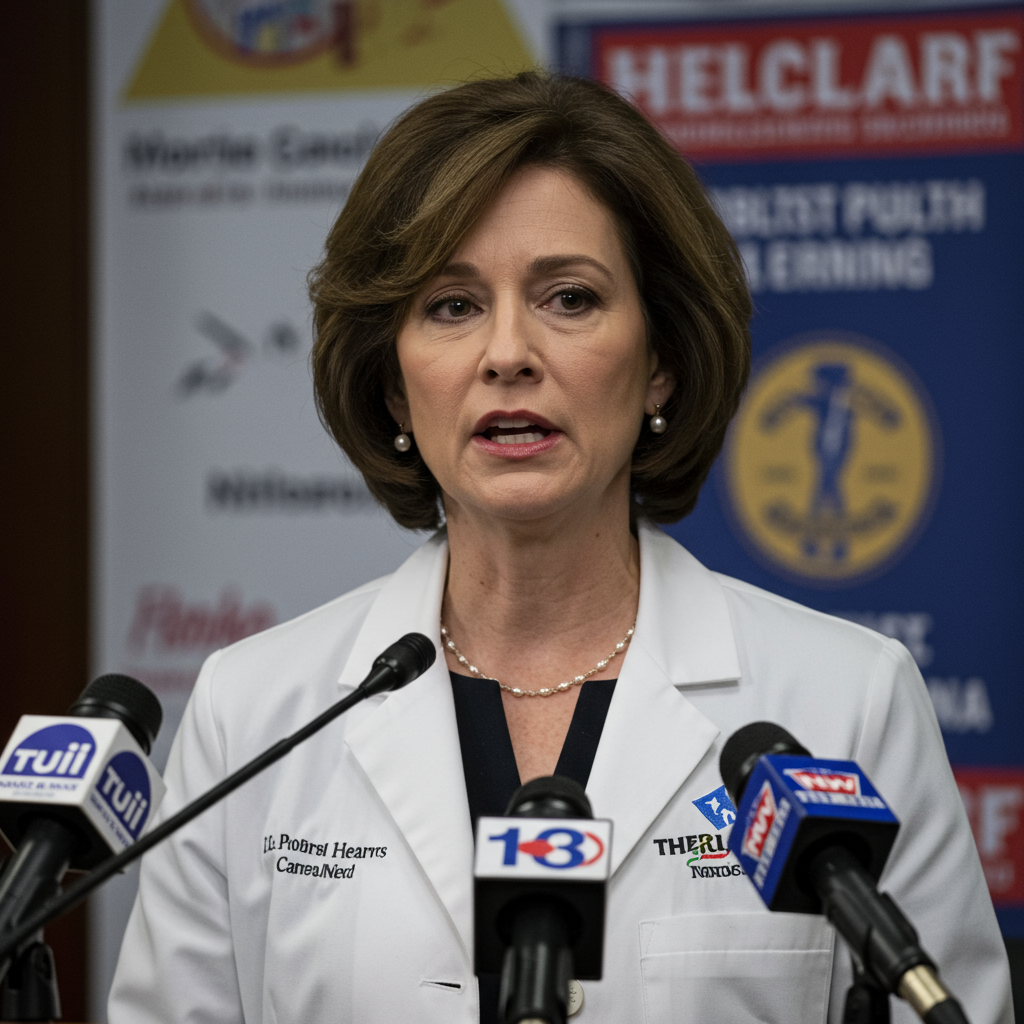North Carolina health officials have confirmed the state’s first case of measles in 2025. The case involves a child visitor who recently traveled into the state from a country currently experiencing ongoing measles outbreaks.
The North Carolina Department of Health and Human Services (NCDHHS) announced the confirmation on Tuesday, June 24th. The child visited locations in both Forsyth and Guilford counties while potentially infectious.
State and local public health departments in Forsyth and Guilford counties are working diligently to identify specific locations and timeframes where members of the public may have been exposed to the highly contagious measles virus.
Potential Exposure Sites Identified
NCDHHS has released a list of public locations and corresponding times where potential exposures related to this case may have occurred:
Piedmont Triad International Airport: Thursday, June 19 (11:30 p.m.) to Friday, June 20 (1:30 a.m.).
Sleep Inn, Kernersville (1406 Heartland Drive): Thursday, June 19 (11:30 p.m.) to Friday, June 20 (2:50 p.m.); Friday, June 20 (5:15 p.m.) to Saturday, June 21 (11:35 a.m.); Saturday, June 21 (5:30 p.m.) to Sunday, June 22 (12:20 p.m.).
McDonald’s, Kernersville (14000 Heartland Drive): Morning of Friday, June 20.
Greensboro Science Center (4301 Lawndale Drive): Friday, June 20 (1:30 p.m. to 6:15 p.m.).
Ice cream shop at the Piedmont Triad Farmers Market, Greensboro: Friday, June 20 (4:40 p.m. to 5:00 p.m.).
Greensboro Aquatic Center foyer (1921 West Gate City Blvd.): Saturday, June 21 (10:00 a.m. to 12:05 p.m.).
Greensboro Partee Shack (3712 South Holden Road): Saturday, June 21 (10:15 a.m. to 1:20 p.m.).
Lowes Foods, Kernersville (240 Market View Drive): Saturday, June 21 (4:50 p.m. to 7:10 p.m.).
The identities of the child and their family are being kept confidential.
Understanding Measles: A Serious and Contagious Illness
Measles is a highly contagious, vaccine-preventable disease. It spreads easily through direct contact with infectious droplets or by breathing contaminated air. The virus can remain viable in the air for up to two hours after an infected person has left an area.
Symptoms typically develop between 7 and 21 days after exposure. Key signs of measles include:
High Fever: Often exceeding 104 degrees Fahrenheit.
Cough, Runny Nose, and Red, Watery Eyes (Conjunctivitis).
Koplik Spots: Tiny white spots that appear inside the cheeks, gums, and on the roof of the mouth, usually two to three days after initial symptoms begin.
Rash: A red, raised, blotchy rash that typically starts on the face and spreads downwards to the trunk, arms, and legs three to five days after other symptoms appear.
Measles can lead to severe complications and remains a significant global health concern.
What To Do If You May Have Been Exposed
If you were at any of the identified locations during the specified times, health officials urge you to take the following steps:
- Check Your Vaccination Status: Review your immunization records to ensure you are up-to-date on the measles-mumps-rubella (MMR) vaccine.
- Monitor for Symptoms: Watch for signs of measles (fever, rash, cough, etc.) for 7 to 21 days after the potential exposure date.
- Contact Your Healthcare Provider IMMEDIATELY If Symptoms Develop: Call your doctor’s office or the emergency room before visiting so they can take necessary precautions to prevent potential spread upon your arrival. Do not go directly to a healthcare facility without calling ahead if you suspect measles. Officials advise against seeking laboratory testing unless symptoms appear.
Post-exposure prophylaxis (PEP), which can potentially prevent or reduce the severity of illness, may be an option for certain eligible individuals. While the typical timeframe for PEP may have passed for most individuals exposed in this case, those at higher risk – including infants too young for vaccination, unvaccinated or not age-appropriately vaccinated individuals, immunocompromised people, and pregnant individuals – who believe they were exposed should still contact their healthcare provider immediately to discuss options.
Vaccination: Your Best Protection
Health officials emphasize that getting vaccinated against measles is the most critical step individuals can take to protect themselves and others. The MMR vaccine is highly effective.
NCDHHS strongly recommends that all unvaccinated individuals aged one year and older receive the measles vaccination. North Carolina has experienced relatively few measles cases in recent years (one in 2024, none 2019-2023, last in 2018 before that). However, increasing case numbers nationwide, including over 1,200 cases in 36 other US jurisdictions as of June 19, coupled with concerns about declining vaccination rates, have led health experts to anticipate potential cases and worry about a “perfect storm” scenario where the virus could spread among non-immune populations.
NC Health and Human Services Secretary Dev Sangvai reiterated this message, stating, “Getting vaccinated against measles continues to be the most important step we can take to protect ourselves and our loved ones.”
Residents can consult their healthcare provider or visit their local health department to inquire about their vaccination status and schedule an MMR vaccine appointment if needed.

